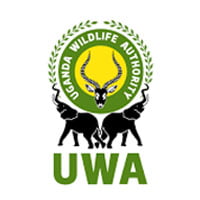Our travel tips for Uganda Rwanda cover most of the important information you should know for proper preparation on your next safari in Uganda or Rwanda.
Weather
The climate in Uganda and Rwanda is as near to perfect as you can find. The nights are cool but rarely cold. A fleece or light jumper is all that is necessary. The days hover around 24 – 28 degrees Celsius.
The sun is hot on the equator and a wide-brimmed hat provides the best protection against sunburn and heat stroke. Sun cream is also essential.
Rainy season comes twice a year – April /May and again in October /November /December. But the sun still shines during the rainy season, and the rain still falls during the dry. The wettest month is probably November, and the hottest month is February.
Health Precautions
Certificates are required for vaccination against yellow fever. Check current medical advice on typhoid, cholera and hepatitis. It is advisable to start anti-malaria medications 10 days before arrival and continue with the same until 14 days after leaving East Africa.
Our guests are also encouraged to make their insurance arrangements for the time they will be in Africa. You need to consult with your local Doctor for advice on Medication.
- Be smart about malaria
- Get immunized
Stop worrying about nasties like yellow fever and Hepatitis B, by getting the right immunizations. (You may have to show proof of vaccination against certain diseases before you can enter the country.)
About Visas Into Uganda & Rwanda
You are required to purchase a tourist visa before you enter Uganda. Tourist visas can be bought in advance or simply purchased upon arrival at Entebbe International Airport or any overland border. Photos are not required and a Uganda tourist visa costs US$ 50 per person for up to 90 days stay in Uganda.
However, tourists are often only given two weeks visa so if you are planning to stay longer than two weeks, be ready to state this at the border. Uganda tourist visas can be extended at the immigration office in Kampala for an additional fee.
Your passport must have a minimum of six months of validity remaining. Read more on how to get a Visa to Uganda
Currency
We use the Ugandan Shilling here, and Rwanda use the local money called (Mafaranga) but often things are quoted in dollars as well.
Credit Cards are rarely accepted, and upcountry it is advisable to carry shillings in smaller denominations. There are numerous forex bureaux in the main towns.
Language
English is the national language of Uganda. while Rwanda is French
Electricity
Uganda uses the British type of power plugs and switches so when travelling to Uganda know the type of charging systems that you have to carry for your Laptops phones and also cameras. Rwanda uses the EU changing system so when you are travelling to Rwanda know the charging systems that you carry for your Laptops phones and also cameras
Packing Suggestions
Please find herewith a list of suggested items which should be used as a guideline whilst planning your trip. Please bear in mind that as mentioned above, there are luggage restrictions of between 15kg (33lbs) and 20kg (44lbs) (in soft duffle bags with no wheels, frames or rigid structures) on some light aircraft transfers and 20kg (44lbs) on most scheduled airline flights.
What To Wear
Clothing
Light summer clothing supplemented by a sweater or jacket should be sufficient. Usually, dressing is informal. Cotton slacks and flat-heeled comfortable walking shoes are recommended on safari. Don’t forget to bring a hat for sun protection and a swimsuit. Umbrellas and windbreakers are recommended in the wet seasons. Refer to our list of things to bring found in your booking pack for more information on
Bwindi is a rain forest so you will need rain gear and shoes with rugged soles for hiking the sometimes slippery surface. Long-sleeved shirts/blouses and trousers pants (preferably jeans) to protect against some itching plants and insects, waterproof bags to carry your cameras and other sensitive equipment.
Here is a wonderful article that shows you what to pack for your gorilla trekking adventure in Bwindi. It is extensive and has helped so many people pack right for the journey.
- Sun hat/bush hat.
- Headscarf/bandana – particularly for dusty dry regions.
- Golf shirts and/or T-shirts – preferably with a sleeve to protect your shoulders from the sun.
- Long-sleeved cotton shirts
- Shorts and/or skirts – short skirts are not practical for getting in and out of game-drive vehicles.
- Long trousers/slacks.
- Tracksuit.
- Pyjamas – lightweight for summer and warm/thermal for winter.
- Underwear – on game drives the roads can be bumpy and uneven so a suitable bra may be required.
- Socks – thermal options are recommended for the winter months.
- Good closed walking shoes (running/tennis shoes are fine).
- Sandals – preferably low-heeled or flat if you are going on safari.
- Swimming costume.
- Lightweight jersey or fleece in summer.
- Light rain gear or jacket for summer months.
- Warm jersey or fleece plus anorak or parka in winter.
- Additionally, a scarf, gloves and beanies/woollen hats for the cold winter months.
- More formal attire for your stay at prestigious city hotels or on one of the luxury trains.
- BINOCULARS – we highly recommend that you bring your pair for viewing both wildlife and birds.
Security
Precautions should be taken as in any major city. Unless safety deposit boxes are available in your hotel or lodge, always carry travel documents, travellers cheques, cash and other valuables with you at all times. We recommend that you do not walk late in the night but instead take a taxi if you have to.
Do not make sudden movements: That can startle a wild animal and charge. Act as your guide advises and keep your movements, slow, controlled, and steady.
Tipping / Gratuities
Our general recommendation is to tip moderately – by the level and quality of service provided. The following guidelines are generally accepted practice (per person):
- Safari guide(s) – US $5 -$10 per day;
- Camp staff – US $3 – $5 per day, as a pooled tip to be shared among the housekeepers, waiters, bartenders, etc.
- driver/guides – US $2- $5.
- For porters and waiters at hotels and taxi drivers in cities, the customary tip is approximately 10%. (Tipping in US$1.00 bills for porters and waiters is greatly appreciated).
The traditional gratuity to safari guides or camp staff is not included in the price of your tour but is completely discretionary. Beware of unscrupulous people who try to exhort extra payment from unwary passengers just for shuffling their bags around.
We would like to emphasize that tipping is not a requirement but should be undertaken only by choice and dependent on the service received. Whatever you believe to be appropriate will be appreciated by the staff you have met.
Things to Bring On a Gorilla Tracking Safari in Uganda & Rwanda
- Always wear comfortable hiking shoes which are appropriate options for steep muddy slopes.
- You should use earplugs if you feel uncomfortable with the sounds of the jungle.
- You should carry a packed lunch and enough drinking water for your gorilla tracking tour.
- You should bring rain gear, sunscreen lotion, a hat (due to unpredictable weather) and also insect repellent.
These are all the gorilla tracking rules you should follow when planning for a trekking safari tour. For more information about additional gorilla tracking rules and regulations, feel free to reach Exclusive African Safaris through an email or a phone call!
Respecting Wildlife & Safety When Staying At Safari Camps/Lodges
Safety is of utmost concern to us and we request you take note of the following guidelines:
- The wild animals are not like those found in theme parks – they aren’t tame.
- Most of the safari camps are unfenced and dangerous animals can (and do!) wander through the camps.
- Many of the animals and reptiles you will see are potentially dangerous. Attacks by wild animals are rare but there are no guarantees that such incidents will not occur.
- Exclusive African Safaris Ltd cannot be held liable for any injuries caused during an incident involving the behaviour of wild animals.
- Please listen to the camp staff and guides. The safety precautions need to be taken seriously, and strictly adhered to.
- Never walk on your own without a guide – even to your rooms. After retiring to your rooms at night, don’t leave them.
- Observe animals silently and with a minimum of disturbance to their natural activities. Loud talking on game drives can frighten the animals away.
- Never attempt to attract an animal’s attention. Don’t imitate animal sounds, clap your hands, pound the vehicle or throw objects.
- Please respect your driver/guide’s judgment about proximity to lions, cheetahs and leopards. Don’t insist that he take the vehicle closer so you can get a better photograph. A vehicle driven too close can hinder a hunt or cause animals to abandon a hard-earned meal.
- Litter tossed on the ground can choke or poison animals and birds and is also unsightly plus environmentally unfriendly.
- Never attempt to feed or approach any wild animal on foot. This is especially important near lodges or in campsites where animals may have become accustomed to human visitors.
- Refrain from smoking on game drives. The dry African bush ignites very easily, and a flash fire can kill animals.






